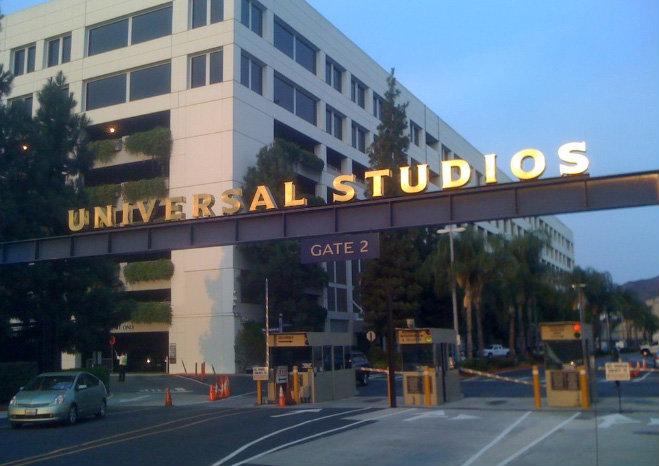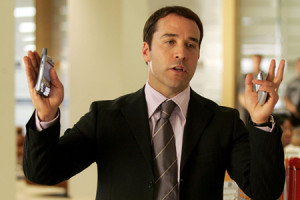I got this email from a total stranger this morning. She said, in part:
“Okay, here goes. I’m a teen therapist for 20 years… I’ve been writing for a long, long time. Just putting it out there. I’d love an opportunity to write a script with you. I’ve no idea where one finds a writing partner. I’m a novice at format not content or ideas. I am a sponge when it comes to learning. I admire you and sometimes you just gotta go for it. I teach people to ask for what they want, so I’m asking. Take a minute and feel how awesome my request is… I’m super creative and I like to write about real life events..with a twist. I’m a Gemini. If that helps, great..if not, I have many life experiences worth writing about and letting others go on that journey…I hope you want to know more!”
I wrote back…
Sorry, I’m not interested in co-writing a script with you. I’m glad you teach teens to go after what they want… but you should also advise them to be realistic, to do research, and to learn about the best way to achieve their goals. Reaching out to professional writers to collaborate is not a successful strategy for breaking into the entertainment industry. Everyone has ideas and life experience…and an astrological sign. Instead, you should hone your screenwriting skill by taking classes or reading books… and write a spec script. Often the best contacts you can make are in those classes… the student next to you could sell her script and become your contact in the industry. If you want to learn more about breaking into TV writing, you might check out my book SUCCESSFUL TELEVISION WRITING.
Naturally, declining to appreciate “how awesome my request is” and jump at the rare opportunity to work with someone who has life experiences, is super creative, and a Gemini, didn’t go over well. She replied:
There are kinder ways to say things Lee.. but hey, You crossed my fb path, making yourself accessible so I went for it. I will continue to do so as I teach my kids. If you only wanted to be approached and praised and a book purchased, got it! I would never discourage anyone from trying. Opportunity lies everywhere. Please do not advise me on my skill set with my teens. You responded In a condescending manner. After many have reviewed your responses…people think your are rude and acted horribly!. I no longer admire someone who reprimands another like that…you take care sir.
Apparently, my posts showing up in her FB feed gives her permission to make stupid proposals to me. I didn’t say this, of course. Instead, I replied:
Your response to a polite rejection is telling. You clearly don’t appreciate the outrageousness, and presumptuousness (is that even a word? I really should know) of contacting a professional and asking to collaborate. It’s a huge, absurd and frankly insulting ask. Would you contact Diane Warren & Taylor Swift and ask to collaborate on writing songs, although you don’t have song song writing skills, but have coached teens, are really creative, have lived life, and are a Gemini? Would you reach out to Michael Giacchino about co-scoring a movie, or James Patterson about co-authoring a novel, or Ray Romano about co-writing jokes, or Amanda Gordon about co-writing a poem? I’m not in their league, of course, but your ask is essentially as ridiculous. They’ve worked hard to get where they are… and you want to partner with them? What are you thinking? I spend a LOT of time teaching, mentoring and helping aspiring writers…and have for decades. The difference between you, and all the aspiring screenwriters and authors I have worked with over the years, is that they take the time to understand the field they want to enter, to reseach how they work, and to learn the skills necessary to succeed. They don’t cold call professionals and ask to be their partner. You need to get real…and get over yourself. Or you are in for a lot of disappointment.
I knew where this response would lead, of course, and she replied exactly as I knew, and now you know, she would:
We do not agree. Thank you for your time. It was a mistake to approach you. Be well sir.
You need to stop. Your behavior is not constructive its destructive. Im done needing to hear from you. Not everyone fits your mold of thinking. You have been abusive. I’ll be sure to pass this experience on.
And then she blocked me. I don’t know what makes some people think they are entitled to make dumb requests like this…and then get deeply offended when their offer is rejected. I shudder to think what bad advice she’s giving to teens.



 People are always writing me for advice about TV and publishing, not that I have any great wisdom to impart. But that doesn’t stop me from replying anyway.
People are always writing me for advice about TV and publishing, not that I have any great wisdom to impart. But that doesn’t stop me from replying anyway.

 You’d think he would have put his journalism skills to use and a) read
You’d think he would have put his journalism skills to use and a) read
 I get lots and lots of questions asking for career advice from readers. Here are a few that came in recently.
I get lots and lots of questions asking for career advice from readers. Here are a few that came in recently.


